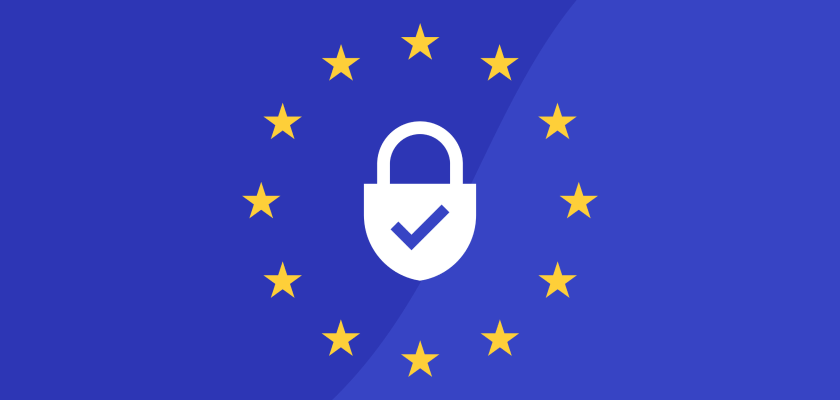
Navigating Legal Challenges for Marketing Agencies
Marketing agencies face many legal challenges that require attention, expertise, and proactive compliance actions.
With clever strategies and active campaigns, they must navigate a complicated web of restrictions and laws to protect clients, consumers, and their reputations.
The Legal Landscape in Marketing
Marketing agencies work within a complicated legal framework that controls all aspects of promotion, branding, and promotional moves. To best help their customers while bypassing legal difficulties, marketing companies must have a firm grasp of this legal landscape. Essential data security laws that are vital to know — are the General Data Protection Regulation (GDPR) and the California Consumer Privacy Act (CCPA).
American Marketing Association survey claims, that 84% of marketing companies consider respecting data-safeguarding laws like GDPR and CCPA is crucial for maintaining customer trust and credibility.
The Significance of GDPR in Marketing Compliance
The GDPR is a key part of the law that has fluctuated the marketing industry’s data security and privacy landscape. It is essential to prioritize protecting people’s information, ensuring transparency in data processing, and improving control over one’s records. With the growing digitalization of advertising practices and the proliferation of data-driven strategies, GDPR has emerged as an increasingly essential safeguard for client rights and constructing agreements between groups and their audiences.
The emphasis on acquiring specific consent, implementing data security criteria, and adhering to strict data safety regulations highlights GDPR’s essential role in encouraging honest and reliable statistics-driving techniques within marketing organizations. By complying with GDPR norms, marketing companies mitigate legal risks and potential fines and show dedication to respecting consumer privacy and promoting a culture of trust and transparency in their operations.

Key Reasons Why GDPR is Important
- Enhanced Data Protection: GDPR guarantees people more control over their data, enabling data collection and processing transparency.
- Increased Accountability: GDPR improves accountability and responsibility in data handling by instructing companies to uphold strict data protection measures and practices.
- Customer Trust and Transparency: Complying with GDPR creates customer trust by displaying a dedication to safeguarding confidential information and appreciating privacy rights.
- Legal Compliance: Loss to attach to GDPR can result in significant fines, making compliance paramount for avoiding legal repercussions.
- Global Impact: GDPR’s impact stretches beyond the European Union. Many countries have embraced comparable data protection laws, highlighting its global value in data privacy regulation.
By comprehending and implementing GDPR, marketing agencies can guide the evolving data defense landscape, build more powerful consumer relationships, and work with integrity and compliance in the digital world.
Proactive Legal Engagement for Marketing Success
Practical legal compliance involves proactively including legal matters in marketing strategies to foresee risks, mitigate liabilities, and foster long-term customer connections founded on transparency and trust. By adopting a holistic approach to legal issues, marketing agencies can leverage compliance as a competitive advantage in a highly regulated industry.
Proactive legal engagement covers marketing agencies from potential legal traps and positions them as trusted consultants to customers desiring guidance on compliance and regulatory issues. By combining legal expertise with strategic decision-making, agencies can offer creative resolutions prioritizing legal compliance while conducting company growth and customer satisfaction. This proactive method minimizes risks and legal liabilities and infuses a culture of integrity and responsibility within the agency, ultimately enhancing its prestige and credibility in the competitive marketing landscape.
Compliance Strategies and Best Practices
Sticking to promotion regulations, such as those outlined by the Federal Trade Commission (FTC), is essential for preserving transparency, integrity, and customer belief. Delivering advertisement measures and exposure requirements is critical to protecting brand reputation and avoiding legal repercussions.
Defending data privacy and protection is another crucial area for marketing agencies, given the strict conditions of data privacy laws like the GDPR and CCPA. Enforcing strong data defense measures, providing consent management, and performing periodic audits are necessary to control data breaches and maintain compliance.
During my tenure, I experienced the significance of particular commitment to promotion restrictions set forth by entities like the Federal Trade Commission. Our team successfully upheld clearness, maintained brand integrity, and encouraged consumer trust by diligently navigating the complex landscape of advertising standards and disclosure requirements.
Moreover, our proactive policy to protect data privacy and protection, aligning with laws such as the GDPR and CCPA, allowed us to implement reliable data protection standards, control support effectively, and conduct routine audits to avert potential data breaches and ensure ongoing compliance.
How To Safeguard Intellectual Property
Protecting intellectual rights is important for marketing agencies. Since most agencies don’t have in-house lawyers, they rely on contract management tools to handle their agreements. By using platforms like Loio, where you can find and draft these essential contracts, agencies can easily safeguard their intellectual property rights and prevent unauthorized use.
Marketing companies must mitigate legal risks associated with copyright violation and defamation. Completing regular content material audits, scanning social media channels for unauthorized use of material, and ensuring noticeable exposures in advertising and promotions are crucial to limiting felony liabilities and upholding moral standards.
Navigating legally challenging situations is crucial to fulfillment in the marketing industry, requiring companies to prioritize legal compliance, engage with professionals, and stay adaptable to converting prison necessities.
By embracing legal considerations as a fundamental factor in their techniques, marketing companies can navigate the complexities of the legal panorama with integrity, confidence, and moral advertising and marketing practices.




















